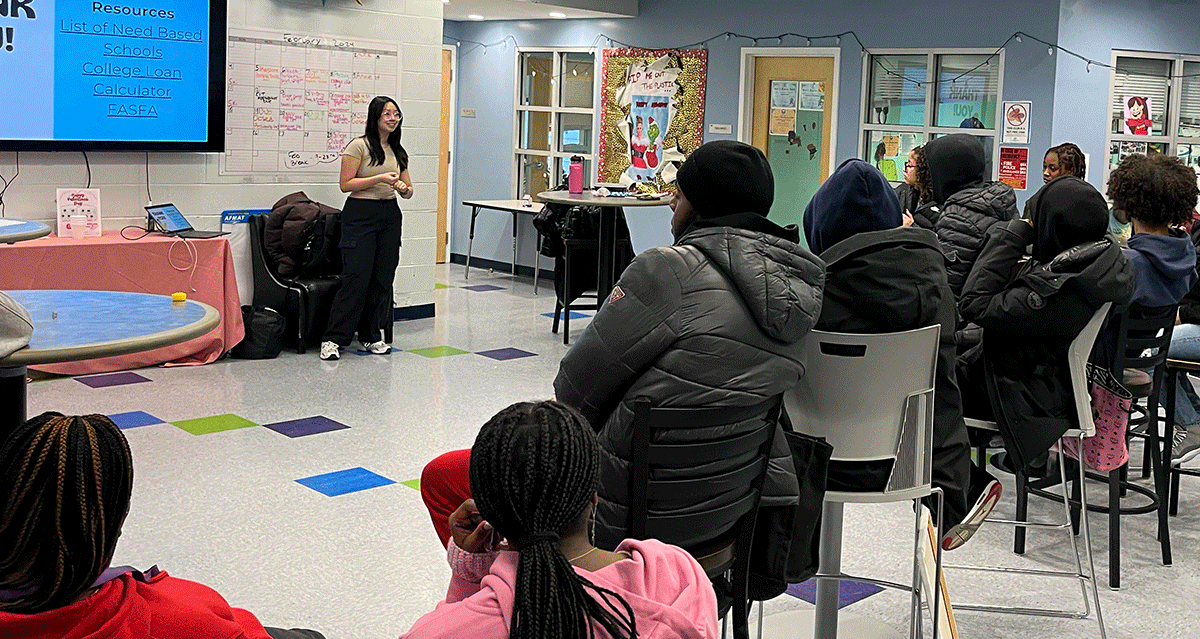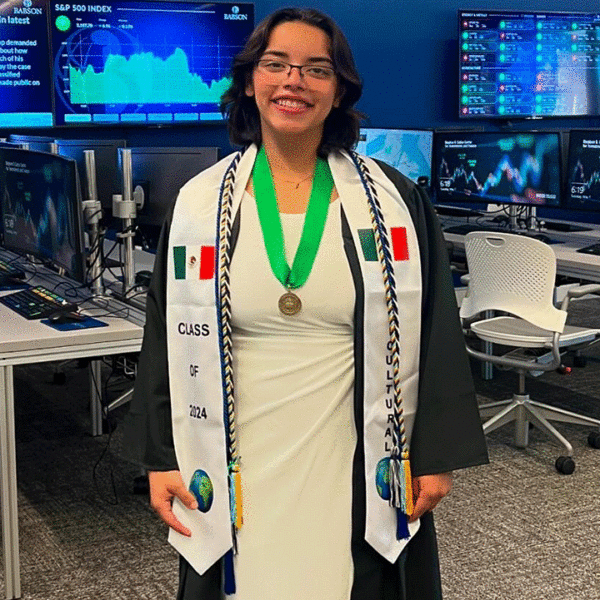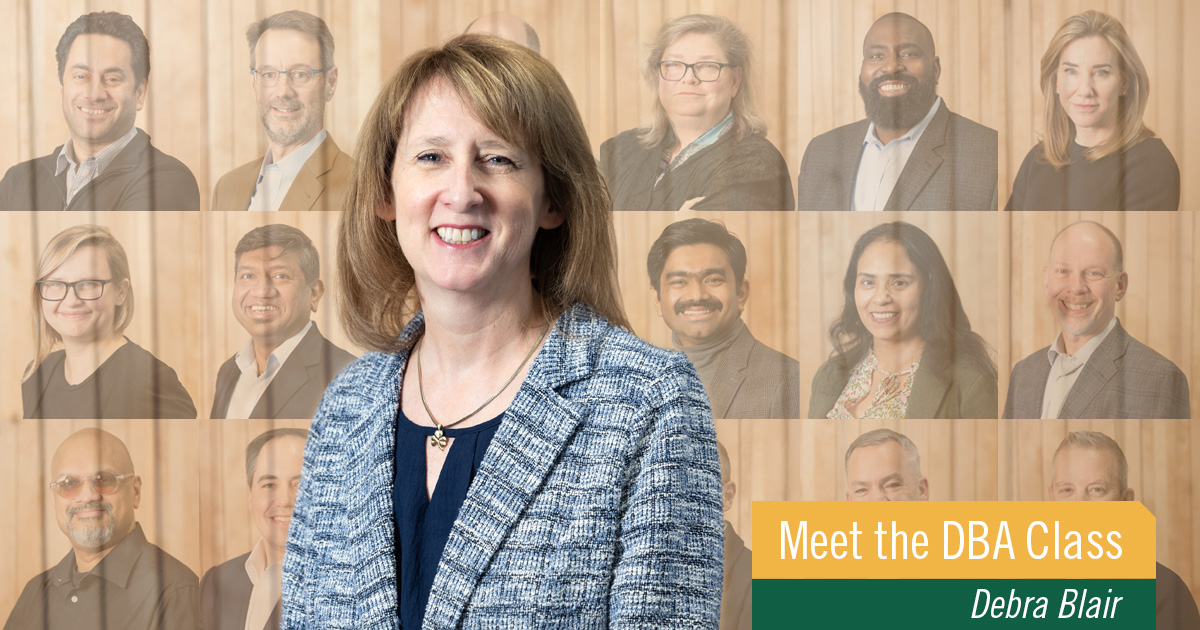Babson Students Teach an Essential Skill for Life: Financial Literacy

Knowledge is power. To be without it is to fall behind.
That’s especially true with matters of money, which is a complicated and tricky topic, particularly for young people. How does one save and budget and invest? How does one manage credit cards and bank statements and loans? That can be a lot for young people to figure out, and if they come from underserved communities, places that may be financially insecure, such knowledge can feel daunting and unattainable.
“It gets overwhelming. They are confronted with a world of numbers and complex jargon,” says Andrea Torres ’24, a Babson Global Scholar who graduated from the College last month. “They feel like they’re not prepared. They feel like it is too advanced for their age.”
That lack of knowledge and confidence around money can have repercussions for a lifetime, beginning with one’s education. “They may discount college right away because they may not be able to afford it,” Torres says.
This didn’t sit well with Torres. She wanted to ensure that every young person, regardless of their background, has the financial literacy necessary to navigate the real world. “It matters for their sense of independence,” she says. “The more knowledge you have in your mind, the better your outcomes will be.”
During her four years at the College, Torres helped to build a financial literacy program with Babson students serving as mentors to teens. By the time of Torres’ last semester, the program was regularly educating dozens of teens at five Boys & Girls Clubs in the Boston area. “If there’s any way we can contribute to their future,” she says, “we want to be a part of that.”
A Host of Financial Issues

The Financial Wellness Program, part of the larger Babson Finance Association student group, tutors young people on a host of financial issues: investing, budgeting, using credit cards, understanding bank services, and breaking down the expenses and taxes seen in paychecks. With participants ranging in age from 12 to 18, the program made sure to address issues, including loans and financial planning, critical to those planning to attend college.
Nine Babson students, most of them first-years and sophomores, served as mentors. This past semester alone, they delivered more than 20 educational sessions. Torres praised their dedication. “This program wouldn’t be here today without the help of the mentors,” she says.
Over her four years at Babson, Torres has served as a mentor, then vice president, and finally as director of the Financial Wellness Program. To create a robust program, she and other students have made connections in the community, trained mentors, and pushed to hold more and more sessions.
For Torres, this giving back is about paying forward the opportunity she was given at Babson. As a Global Scholar from Monterrey, Mexico, she learned a lot, and she wants to pass along that knowledge to others. “There is a personal responsibility to it,” she says. “I am leaving Babson in a completely different place from where I started. I am so grateful. I have to share.”
This isn’t the first time Torres has strived to educate others. As a first-year student, she worked at the Dunkin’ on campus and, talking with her older co-workers with children, heard how they didn’t understand the college admissions process because of language barriers. For a social project as a Natalie Taylor Scholar, she decided to set up a mentoring program to explain the admissions process. “When I see a problem,” she says,” I have an urge to solve it.”
Preparing for the Future
The ultimate goal of the Financial Wellness Program is to stand young people in good stead for the future. “We want to create values in them, a baseline of how to think about money,” Torres says. “We want to create habits. The habit of saving. The habit of investing. The habit of planning out expenses.”
“We want to create habits. The habit of saving. The habit of investing. The habit of planning out expenses.”
Andrea Torres ’24, director of the Financial Wellness Program
For their part, the teens are eager to participate. “They are really curious. That’s what I love,” Torres says. “They come in with a smile. They want to learn.”
Now that she has graduated, Torres is looking ahead to next month, when she will start her new job as an investment banking analyst at Goldman Sachs in New York City. That means she is leaving behind the Financial Wellness Program, which she refers to as “my baby,” but she is confident that it is well positioned to carry on and keep growing in the future.
“I am leaving my baby,” she says. “It is ready.”
Posted in Community




